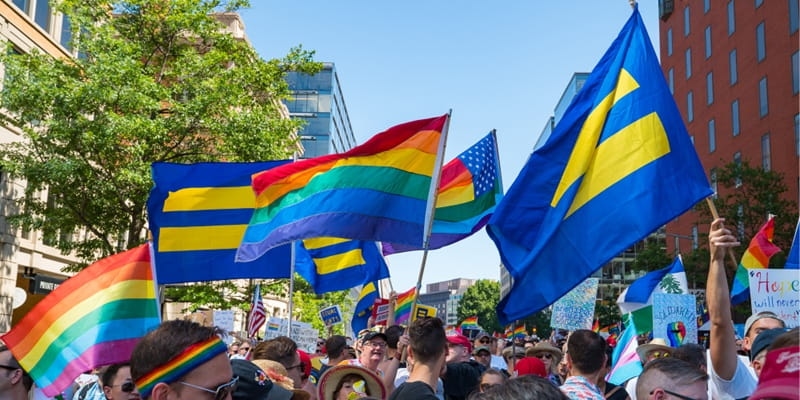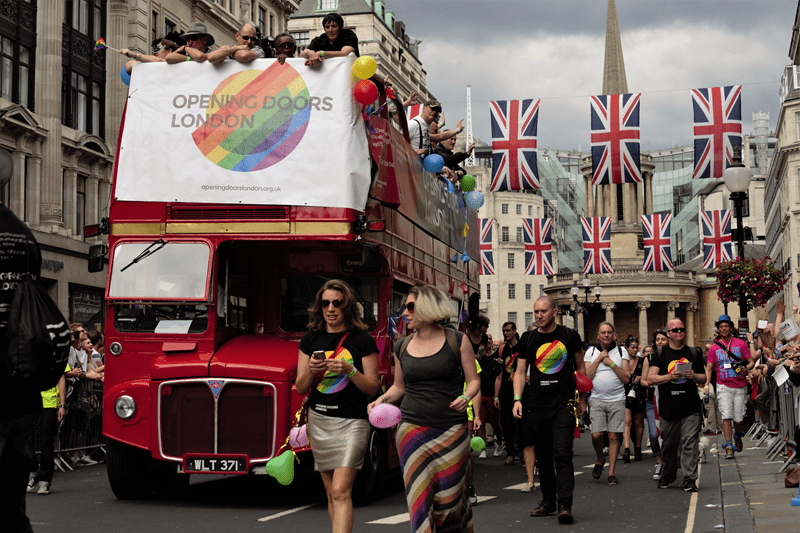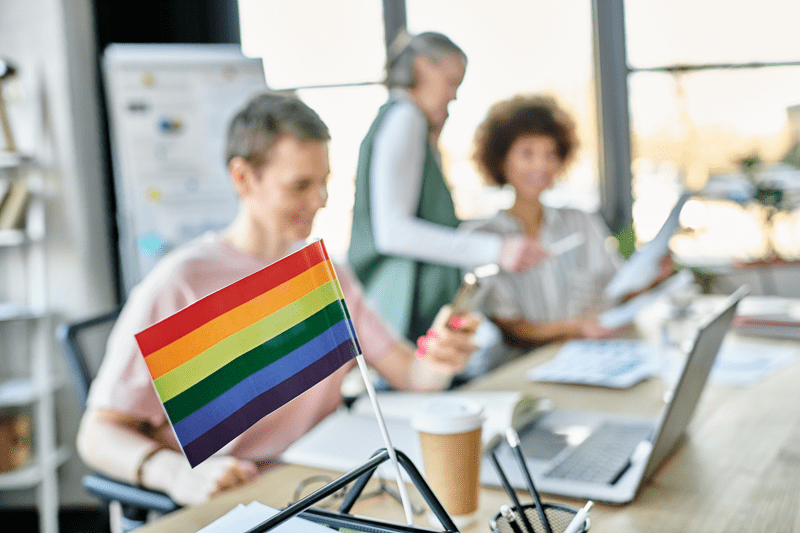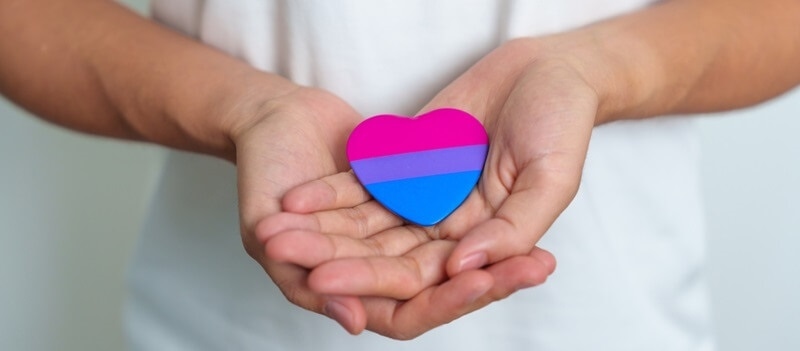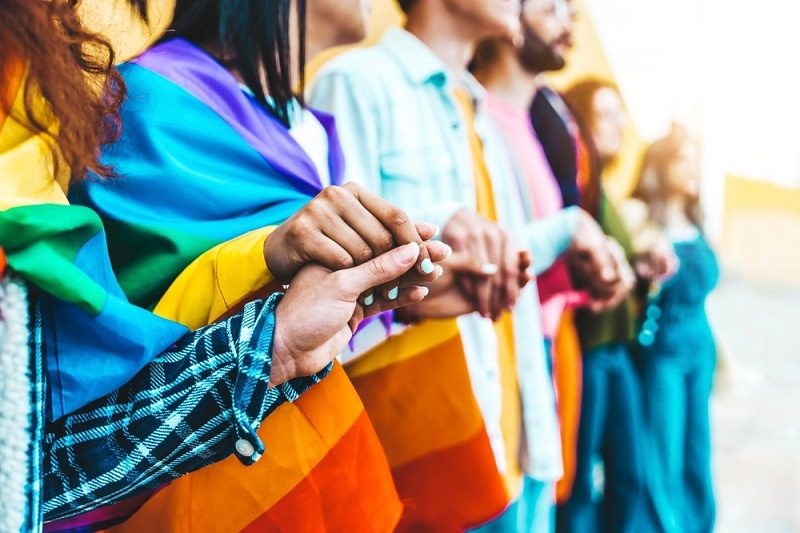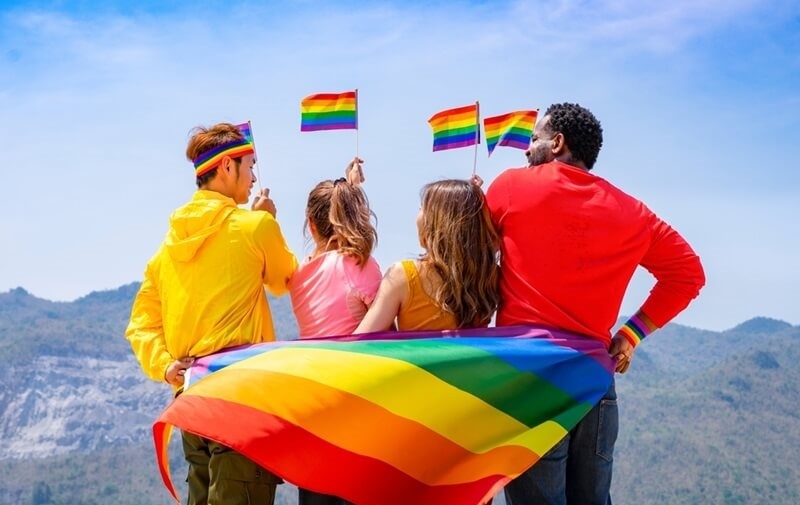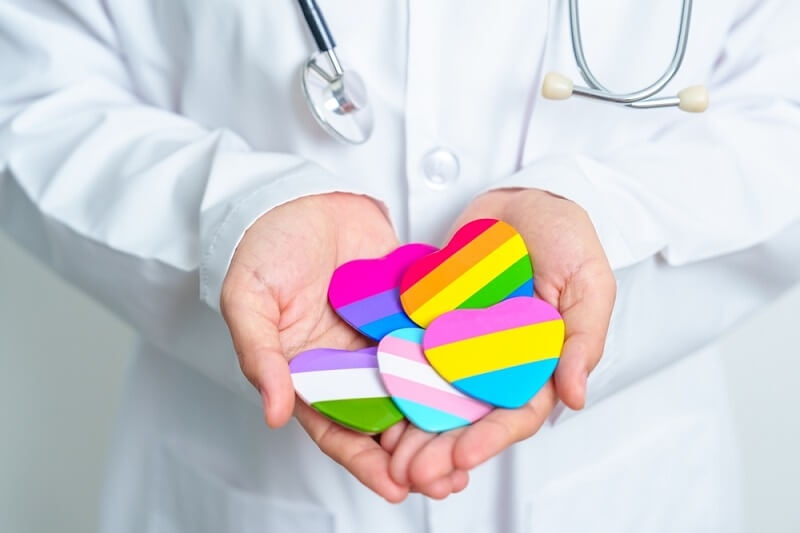Why Gay Depression is Often Overlooked: Addressing the Issue

The problems that the LGBTQ+ community confronts in terms of mental health are, as such, often overlooked, interpreted, and neglected. Though the society is increasingly accepting, the issues still plague the LGBTQ communities with various sorts of mental health concerns - slightly higher rates of depression, anxiety, self-harm, and suicide. These problems are usually exacerbated by stigmatization, discrimination, and the need to internalize such seemingly ordinary but oppressive ideas like traditional gender and sexual norms.
In this blog, we discuss the specific mental health concerns affecting the LGBTQ+ community, why awareness is so critical, and practical tips on how to seek help and build resilience.
Understanding the Unique Mental Health Struggles
The LGBTQ+ individuals are even more prone to mental health issues in comparison to straight people. These people from this group have been primarily found suffering from depression, anxiety, and suicidal thoughts due to such rejections by society and family members, acts of bullying, and a failure of friends and religious sanctuaries to acknowledge the feelings of these individuals. For instance, gay depression is not often observed since it can be dismissed or misunderstood as part of the "coming out" process when, in fact, these symptoms reflect far more profound and tormented wrestling issues. Dread of rejection, internalized homophobia, and the burden of carrying a secret around all create chronic isolation and despair.
For transgender people, however, particular mental health challenges involve gender dysphoria-the discomfort or distress a person feels due to a mismatch between their internal gender identity and their natal sex-and unique issues regarding access to healthcare and support services. All of this, combined with a very high rate of violence, makes mental health care critical for this population.
Mental Health Challenges in the LGBTQ+ Community
The mental health problems in the LGBTQ+ community remain largely underserved and stigmatized. Despite this, contemporary society has become more accepting of LGBTQ+ people; however, they tend to suffer from increasing degrees of depression, anxiety, self-harm, and even suicide. All these, combined with stigmas and discrimination, will exacerbate the challenges.
In this blog, we will examine the specific mental health issues of LGBTQs, highlight the need to recognize them, and then discuss some of the practical guidance that can be given for seeking help and building resilience. These issues are significant for all members of the LGBTQ community to better their mental health.
Understanding the causes of depression in gay men
Depression in gay men can be multi-factorial, and people suffer from different conditions. At a clinical level, depression has been attributed to the imbalance of neurotransmitters serotonin, dopamine, and norepinephrine; new researches also consider GABA and glutamate. Genetics also contributes as depression may be a factor that passes from families, and the risk mostly shows in children, but mainly teenagers and adults.
Beyond biological causes, daily stressors are major precipitants of depression. In this regard, a common precipitant of gay depression is the lack of acceptance by family and friends. Bullying experiences, internalized homophobia, as well as economic and race or gender discrimination also have a destabilizing effect. Many gay men further suffer from isolation within the larger LGBTQ+ community or cannot easily find gay-friendly mental health providers.
In this case, society would reject them, resulting in low self-worth, anxiety, and substance abuse, among others. Deep loneliness brought about by such intrapsychic struggles with identity and coming out may also occur. Healing and resilience, therefore, demand that such persons find counselors who will understand these challenges.
The Role of Stigma and Discrimination

Stigma and discrimination majorly contribute to mental health struggles for many gay men. Rejection or prejudice from family, friends, or society in many ways can impact a person's self-esteem, establish feelings of isolation and shame, and lead to depression and suicidal tendencies. Discrimination based on sexual orientation, gender identity, or some other reason puts gay men in an environment of being marginalized or not safe in many situations. It opens up the doors to anxiety, depression, and even suicidal thoughts in many situations.
Internalized homophobia, where individuals internalize negative societal views about being gay, is a factor that exacerbates these issues and makes one deny the reality and seek help. Brain chemistry, mood regulation, and, generally, mental well-being are impacted by chronic stress caused by the ongoing effect of stigma. It is necessary, therefore, to confront such social prejudices and challenge societal bias and bigotry for a better health outcome for gay men and create an environment in which to heal and grow.
The CDC reports that stress levels have risen significantly in LGBTQ+ youth, who are at a greater risk than their heterosexual counterparts for mental health and other health-related issues. This includes such risks as:
- Engaging in violent behaviors, the example being carrying a weapon or getting in a physical fight
- Risky behaviors leading to unintentional injuries, such as driving under or without a seatbelt
- Substance use, including tobacco, alcohol, or drugs
- Other risky sexual behaviors: unprotected sex and not using preventive measures for births
- Suicidal attempts or death
The Importance of Awareness and Education
The level of mental health problems faced by the LGBTQ+ community needs to be far more publicized. Education of others in schools, workplaces, or healthcare—lessens stigma, supports positive relationships, and creates inclusive attitudes. It is also essential that these cannot be lifestyle choices but a result of complex external and sometimes internal factors.
More opportunities for safe expression for the LGBTQ+ should be availed of, such as in support groups, therapy, or online communities, to reduce feelings of isolation often associated with mental health problems.
Seeking Support and Resources
Despite all these challenges, there exist a myriad of resources and strategies available to help the LGBTQ+ individual overcome their mental health issues. Professional support from therapists or counselors who have experience and expertise working with LGBTQ+ issues can be one of the first steps taken to deal with any mental health concerns. Many communities provide LGBTQ+-specific mental health programs, hotlines, and peer support groups.
Treatment options for depression in gay men
First, support for mental health challenges can be obtained through adequate resources: an LGBTQ+-affirming therapist, someone with experience in treating LGBTQ+ persons, and knowledge about this specific group and their needs, as well as support groups, either in person or online, which are valuable opportunities for the individual to connect with others who share similar experiences and struggles. Organizations such as The Trevor Project offer 24/7 crisis intervention and suicide prevention services. These services are sometimes a lifeline for those in need, often LGBTQ+ youth, but can be accessed by anyone in crisis. Reaching out to such services can provide essential emotional support and guidance during difficult times.
Besides seeking expert help, of course, self-care is also essential, as well as proactively taking preventive action regarding one's mental health. It will alleviate stress and help to improve mental health if you find things to do, such as exercising, mindfulness, or journaling. Knowledge of one's rights regarding health care, employment, and society has substantial value because it gives them the strength to overcome the barriers to accessing care and enables everybody to be helped. The knowledge of these resources and strategies will assist the LGBTQ+ community in prioritizing their mental health and developing the support required to flourish.
Conclusion
An individual does face certain kinds of mental health issues caused by the multifaceted and highly influential problems of social stigma, as well as discrimination and life influences unique to them. However, there is an uptrend regarding awareness, promoting acceptance, and availability of the right resources, all of which would help provide them with much-needed support at such a time.
All these act as foundational steps toward building resilience in life and preserving good mental health support; seeking an LGBTQ+-affirming therapist, attending groups, reaching out to helplines, and self-care are a few of them. Knowing your rights and being prepared for proper care are important in overcoming support barriers.
Together, better understanding and accessible mental health resources could make a better world for all of these queer individuals to feel empowered and supported and capable of thriving mentally and emotionally.
FAQs
How do I accept myself as gay?
Accepting oneself as gay means appreciating and embracing the feelings without judging them, which is a journey into one's self. That requires acknowledgment of your emotions to understand that being gay is part of who you are. One needs education on different LGBTQ+ identities, the building support from friendly family members or communities, and the undoing of negative beliefs in one's mind as steps towards self-acceptance. Be kind to yourself: This journey takes time, and it is okay to have a gentle pace. Talking with an LGBTQ+-affirming therapist may also be helpful if you need it. Most importantly, please remember that you deserve love and respect precisely how you are.
What is the main reason for male depression?
Mainly, male depression results from a combination of different factors, including biological, psychological, and social aspects. For instance, other common underlying factors include imbalances in some chemicals in the brain, genetic predisposition, pressures from societal expectations, or other stressors such as relationship breakup issues or work pressure without emotional support. Moreover, men are also less likely to seek help.
Do gay men have mood swings?
Oh, absolutely! Just like everyone else. Gay men have the same emotional range as anyone—because, surprise, we're humans, not mood-altering unicorns. Shocking, right?
How does being gay affect you?
Being gay impacts you in the same way any other human being is impacted—through experiences, emotions, and personal growth. However, things like discrimination, stigma, or needing self-acceptance by society could make it even more complicated. But in itself, being gay is just one part of your identity.










